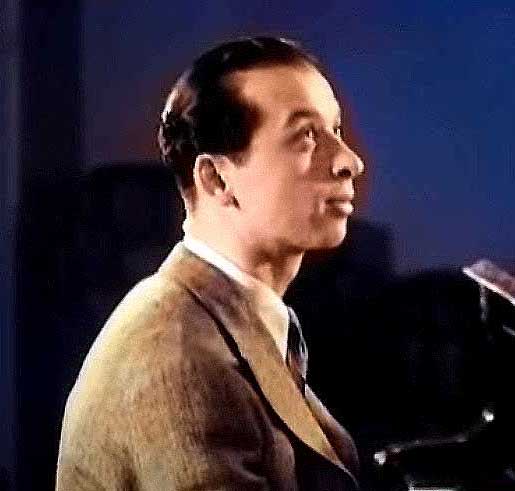MONIA LITER: (Odessa, Kherson Governorate, Russian Empire (now Ukraine), 27 January 1906 - London, 5 October 1988)
Monia Litter was trained at the Imperial School of Music in Odessa. The Russian revolution of 1917 saw the exodus of refugees, known as “white Russians”, who were loyal to the deposed tsarist establishment and opponents of Lenin’s, “red” Bolsheviks. It is estimated that by the mid-1920s there were 300,000 white Russians in China.
The obvious destination was Harbin, which had been a pseudo-Russian colony since 1898, administered by engineers and officials appointed by the tsarist regime to build and operate the Chinese Eastern Railway (CER). In 1924, China recognised the new Soviet government and the vast majority of these white Russians became stateless. Any work was hard to find in China for these white Russians and the musicians amongst them found themselves playing in the decadent night clubs of Shanghai and Hong Kong.
Monia went to Shanghai and played classical music with an Italian opera company and jazz with a band lead by Jimmy Lequine. The jazz band got a residency at the Grand Hotel Calcutta. This is where Al Bowlly first met Monia Litter and recorded their very first record as the Lequime's Grand Hotel Orchestra. Al Bowlly on banjo and Monia Litter on piano and arrangements. April 1926.
The Lequime Orchestra then went to Singapore and played at Raffles. Al Bowlly left in 1927 to head for Europe and Monia Litter stayed in Singapore till 1932 becoming a British subject. 1932 was a very successful year for Al Bowlly, he was singing with several orchestras made up of the very best musicians in London. He still had the time to contact Monia and tell him to come to London.
Monia turned up at the Monseigneur in London while Al was on stage. He changed his name from Litter to Liter. Al was at the height of his fame and was offered solo gigs. He used Monia as his accompaniment; to rave reviews. Monia was a magical pianist, and soon was employed by the best British band leaders. “Firstly with Lew Stone (from 1933 to 1936), Nat Gonella (1934 - 1937), Jack Hylton (1936 and 1937), Harry Roy – where he replaced Stanley Black (1939 and 1940), then on various occasions with Victor Silvester (1940 - 1944)”. In 1941 he joined the BBC as a pianist, conductor and arranger. Later he composed and wrote score for film.

